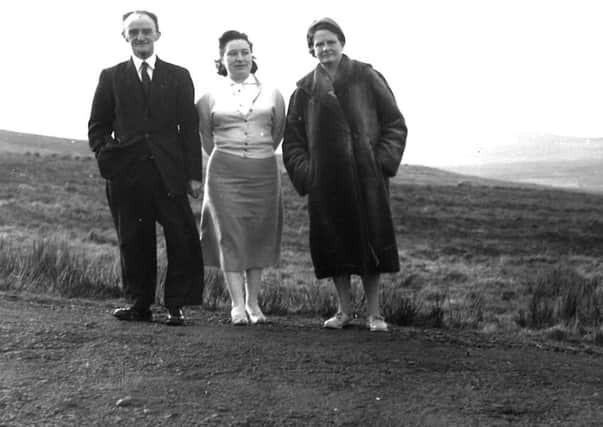WAR DIARY: Larne soldier’s Christmas in France with Orange ‘lodge’


Marching from the Battle of Cambrai to the St Quentin front, we stopped in the village of Boved, situated near Amiens.
Each day, a certain number of men were allowed a pass into Amiens, where I visited the beautiful cathedral. Inside, it almost took one’s breath away, the splendour of the scene that met the eye. This place was badly damaged during the German advance of 1918.
Advertisement
Hide AdAdvertisement
Hide AdIt was here that we had the first snow of that winter, it being the early part of December, 1917, and as we were not expecting to be sent to the trenches for a week or two, we were all looking forward to Christmas and a good time. We stayed in Boves for more than a fortnight, and it was here that I witnessed a French wedding ceremony.
The majority of the men of our Battalion helped to enlarge the weddingprocession. Then our chaps learned that the bridegroom was a French ‘Tommy”, so a good many of them went and got their bayonets and made an arch of them outside the door of the chapel.
In another week we arrived in a little village named Humbercourt, where we spent Christmas, and a right merry time we had. Our dinner was roasted pork and vegetables and plenty of ‘duff’. The pork was very fat, owing to the officers getting all the hams and choicest parts.
After dinner was over, there was free beer in the canteen for all hands. Then there was a concert in the afternoon which killed the time until tea time, and after that the cafes were open to us. Before sitting down in the cafe, the money in each man’s possession was pooled and about 50 men’s money amounted to a substantial sum, so it was not Champagne by the bottle for us, but Champagne by the dozen bottles.
Advertisement
Hide AdAdvertisement
Hide AdThere were two accordions and a few mouth-organs, and we sang songs of every variety and some boys contributed with step-dances. Finally, we had to be ejected by the Military Police.
When we came down to our billet, which was a large barn, we got the old brazier alight in order to make some cocoa; and the wood used was the door of the farmer’s wood shed. There was not much to eat for supper and a man named Skelton remarked that we should have got some of the ham instead of the officers having it all.
Skelton and two others went down to the officers’ mess, which was in a large house in the village, and offered to help the cook with the officers’ dinner.
Before going in, he placed his two companions at the window of the cook-house that overlooked the orchard. Skelton assisted the cook all right, who was a little bit tipsy, and at the same time assisted himself, for as soon as he got the chance, he pushed one of the cooked hams out through the window to the boys outside. Then he told the cook he was going up to his billet, and before he came out, he lifted a bottle of whiskey out of a case and brought it along too.
Advertisement
Hide AdAdvertisement
Hide AdIt was not long until we had tooth and nail at the ham, which was disappearing very rapidly. During the feast, the old French farmer came in, shouting. It was only when he pointed at the ‘brazier’ and shouted “Officer”, we knew he was after his door and intended bringing an officer on the scene.
We assured him that we would get him another door. All the doors around the farms were so made that they could be lifted off their hinges. Two chaps, Lyle from Whiteabbey and McMillan from Ballyclare, set off to the village to get another door and eventually came to a little shed on which was a door about the size of the one we had burned. No sooner had they lifted the door when out jumped what they thought was a large dog. They ran for their lives but brought the door with them, and back in our farmyard they discovered it was a goat that had followed them.
That was the start of the fun. One chap put a blanket around himself, declaring he was “Grand Master of 111 Loyal Orange Lodge”, and there was a procession around the yard with the goat in front.
Sometimes, some of the men were more often in the manure heap than on hard ground. Then they made Orangemen of some of the English men who were with us at this period.
Advertisement
Hide AdAdvertisement
Hide AdEventually, one man went in to sleep and then another until the yard was cleared, and that was the end of Christmas Day.
It Wasn’t All Sunshine (£8) is on sale at The Bake, Broadway; Larne TIC; and Larne Meuseum and Arts Centre. Proceeds to soldiers’ charities.